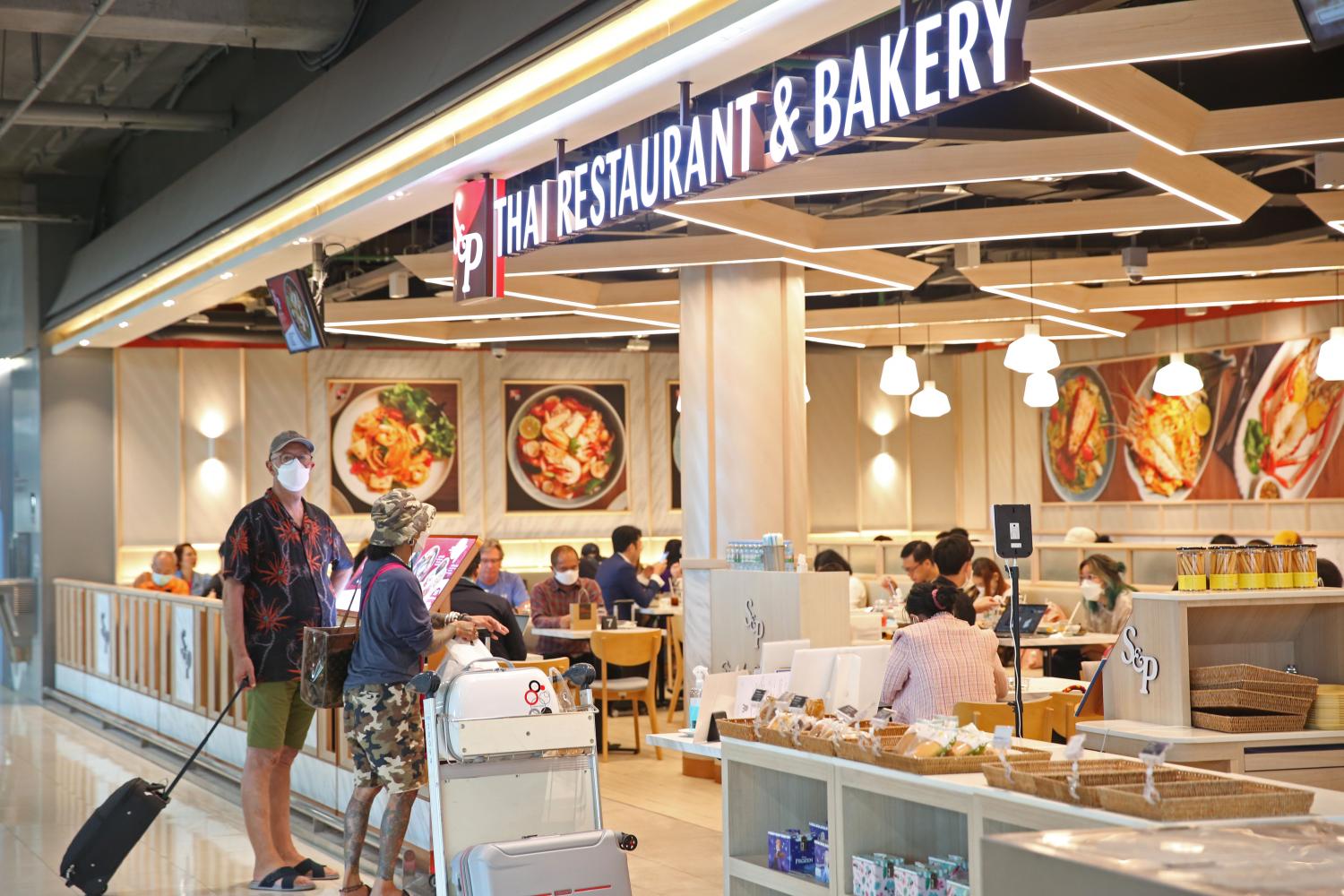
SET-listed S&P Syndicate Plc, the operator of the S&P bakery and restaurant chain, is to adapt its business operation to cope with high operational costs, with the launch of various tools such as work automation in the second half of this year.
Vitoon Silaon, the company's chief executive, said that although the Covid-19 situation in the first half of 2022 had been better than the corresponding period in 2021, and consumers are more confident about eating out, restaurant operators are still confronted by threats including high oil prices and a weak baht, which has resulted in a sharp rise in the prices of imported raw materials such as wheat.
For the remaining five months of this year, he said the business also sees additional risks, such as a shortage of employees due to an anticipated hike in daily wages and more costly electricity bills.
The company, therefore, has started using robots to serve food at its restaurants. Each eatery normally requires 10 employees.
In addition, Mr Vitoon said the company has adjusted the working process for its bakery products to ensure greater efficiency. S&P bakery products are now made by its food production hubs at night, rather than shops baking them in the morning. Its food production hubs then distribute the products to bakery shops in the morning.
The company currently operates 460 production hubs around the country and aims to increase that number to around 480 by the end of this year.
Mr Vitoon said that despite operational costs rising by 30-40% year-on-year in the first half of 2022, the company has only slightly adjusted the prices of some of its food and bakery items.
"We've tried to maintain our prices for as long as possible because we want to retain our customers," said Mr Vitoon. "Bakery products are not usually the most necessary goods in people's lives."
According to Mr Vitoon, although overall dine-in restaurants saw around 80% of normal sales levels in the first half of this year, S&P sales grew less than expected as people remained cautious about spending.
"Therefore, we have yet to invest in the restaurants on a par with the level we did before Covid-19. The Thai economy remains full of uncertainties and a spate of problems persist in the second half of this year,'' Mr Vitoon said, adding that the company would rather put its efforts into renovating existing restaurants in order to have a fresh image to increase same-store sales.
The company will also open around 10 S&P Bakery Mart stores in high-traffic locations such as hospitals, community buildings and office premises in the second half of this year.
It also plans to open 10 new S&P Delivery & Take-Aways (DelTA) to provide delivery and takeaway services.
The number of S&P DelTAs is expected to reach 40 branches by the end of this year.







